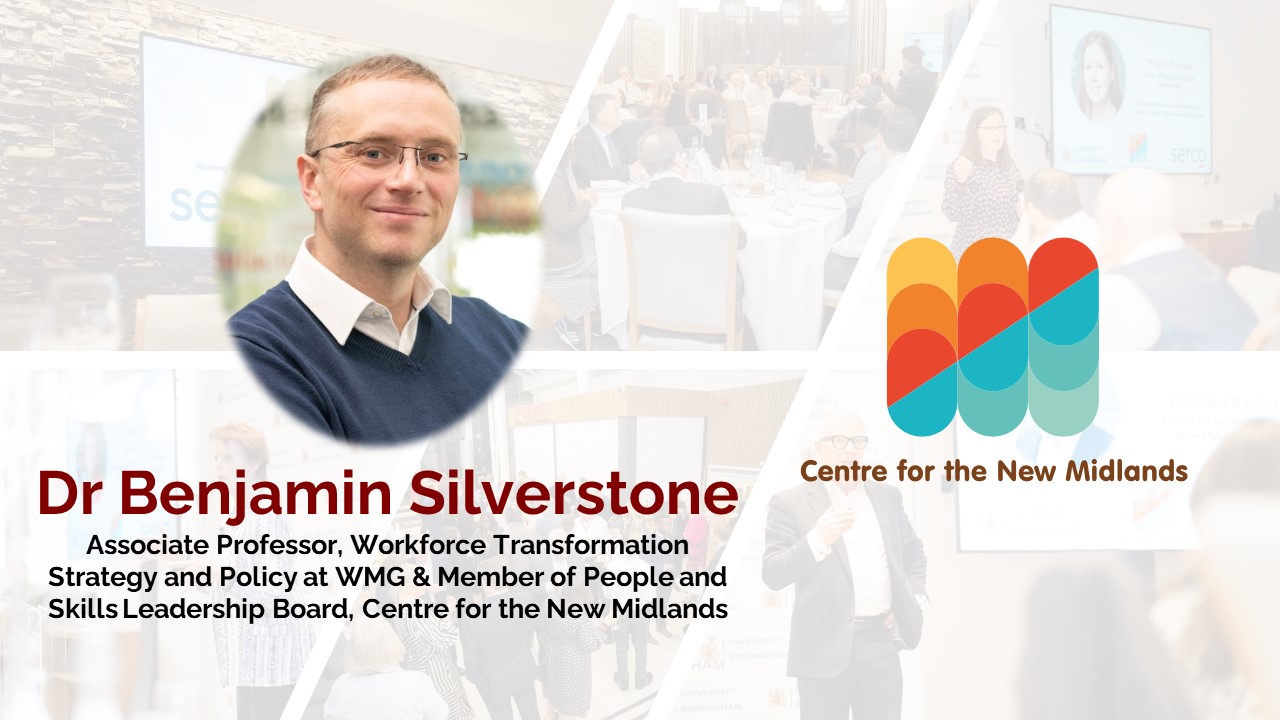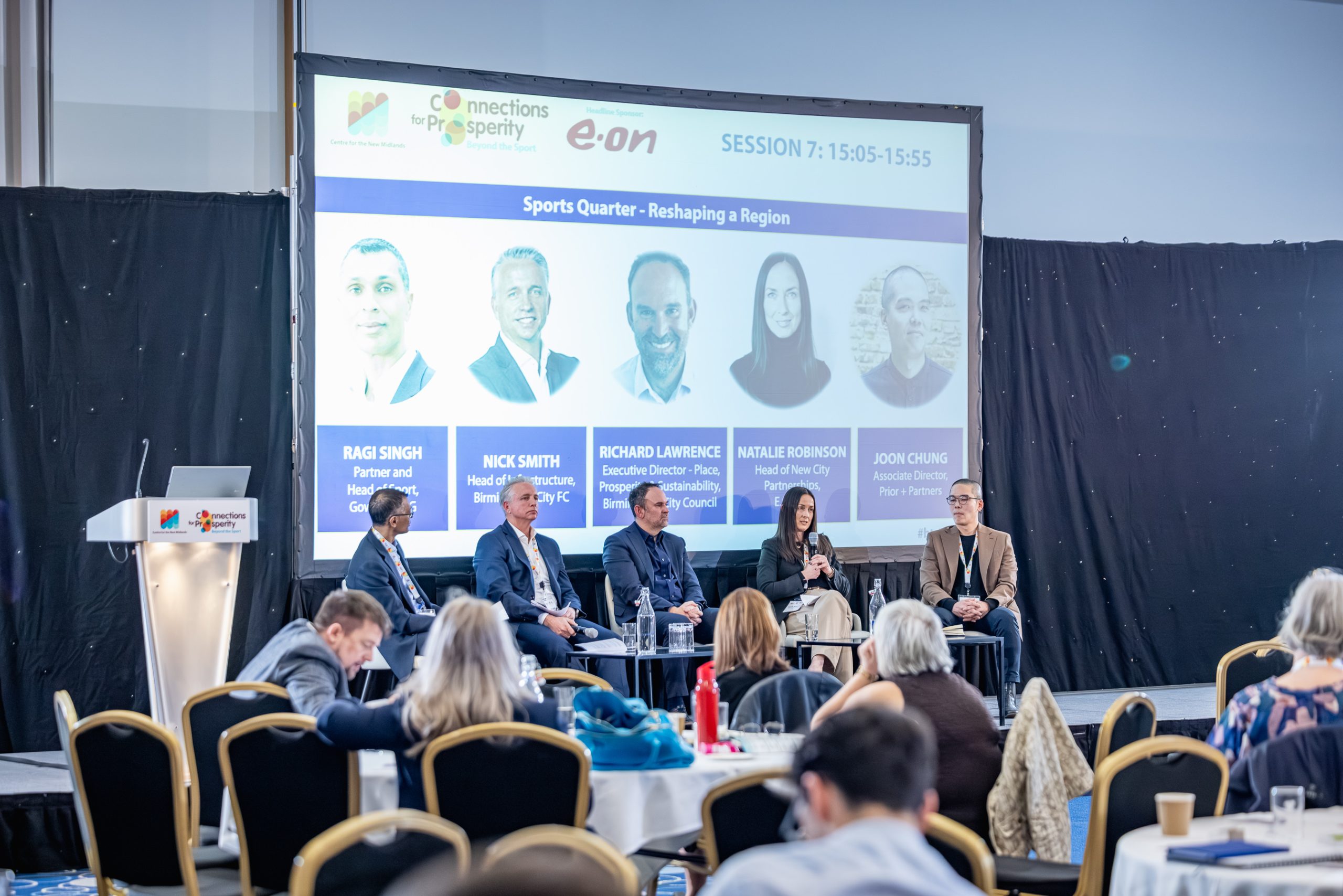The Further Education sector in the UK is experiencing huge challenges in recruiting and retaining the high quality academic staff it requires to deliver the excellent outcomes it is known for. In support of the sector, the Further Education Reservists scheme has been proposed and supported by Government as a key piece in the puzzle of ensuring that industry is able to access the training and skills workforce it requires. An initial pilot, focusing on niche engineering capabilities is scheduled to run the West Midlands region in the remainder of 2024.
In this article Dr Benjamin Silverstone (Workforce Transformation and Skills, Strategy, and Policy Lead at WMG, University of Warwick & Member of CNM’s People and Skills Leadership Board) will discuss the needs for a scheme like this and invites industry and providers to get involved in the pilot.
(June 2024)
Ensuring that employers can gain access to the training and development activities that they need requires a number of different factors to be taken into account. Investment in training will need to be considered, as well as the type, duration, and location. Providers can find it a significant challenge to ensure that they are able to provide the type of training that employers really require due to pressures on staffing and facilities. Government investment in provider facilities, alongside ongoing investment from providers themselves, tends to address the second of those pressures but staffing remains the biggest challenge facing education providers at a time when the demand for training is greater than ever. To help support providers WMG and the Institute of the Motor Industry (IMI) have published a positioning document proposing the establishment of a Further Education Lecturer Reserve to support providers.
The Armed Forces have long relied on reserves to help augment their capability both in times of peace and war. Reservists provide much needed capacity as well as specialist capabilities that tend not to be retained on a full-time basis. The model of the Armed Forces Reserves is well recognised by employers, and the public at large, and offers protection to all parties involved as well as high quality training, opportunities for further development and experience that they would not gain without. It is generally recognised that employers, individuals, and the Armed Forces themselves benefit hugely from the opportunities that Reservists have, the skills they develop and the diversity that they bring.
There are many examples of employers who support providers by lending their staff to delivery specialist components of courses where there may be a gap in provider staffing. Whilst these are, in every single case, undertaken with the best of intent there are sometimes issues with the quality of delivery and the time that is required by those in industry to prepare and deliver. By using the Armed Forces Reserve model as a template, the intention is to create a structure around the sharing of capability that ensure that provider can rely on the commitment being made, that individuals are trained effectively and that employers are not left out of pocket for sharing their capability. Wrapped around these protections is the creation of a culture that recognises the critical role that providers play in ensuring that industry is able to train and develop their existing staff as well as receive capable new staff who are joining the workforce for the first time. Encouraging young, talented employees to engage with providers is key in achieving this.
Following on from a Westminster roundtable hosted by Chris Clarkson MP and chaired by Minister for Skills, Apprenticeships and Higher Education, Luke Hall MP and also attended by leading figures in education and policy including Robert Halfon MP, ex-Skills Minister, the proposal for a Lecturer Reservist Scheme has received public support in the House of Commons.
The West Midlands Region will play host to the pilot to assess the ongoing viability and operation of the scheme as well as formulating the policy needs in order to roll it out Nationally. This is an enormously exciting opportunity that will enable the Midlands region to take a leading role in delivering the kind of flexible capability that our skills system requires.
To find out more about the scheme, or to get involved, please contact Benjamin.silverstone@warwick.ac.uk
Further information on the project can be found by clicking here
The views reflected within this article of those of the author.
ABOUT OUR AUTHOR:
Dr Benjamin Silverstone is an Associate Professor and Director of the WMG Skills Centre at the University of Warwick. He holds an MSc in Management and a PhD in Engineering. He holds a Senior Fellowship of the Higher Education Academy as well as Fellowships to the Royal Society of Arts and World Business Institute.
Ben has spent 20 years working in education and specialises in the development, and delivery, of learning to meet the challenges of tomorrow. He worked to establish the UK Battery Skills Framework and National Electrification Skills Framework and leads on strategic skills work across the West Midlands.








